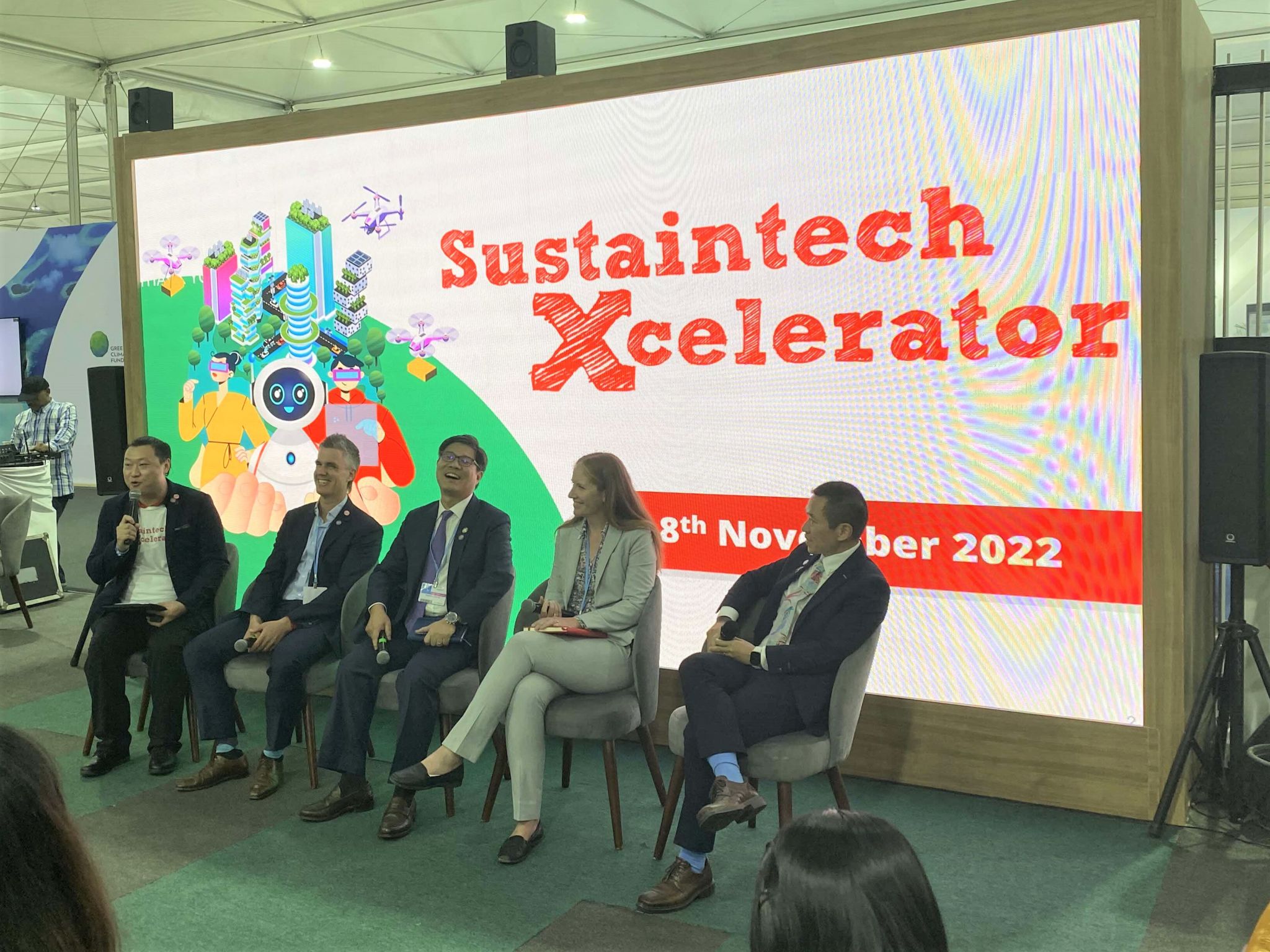
Discover the groundbreaking strides made by innovative startups in Singapore’s climate tech sector as they spearhead sustainable practices and revolutionize environmental conservation in the nation.
Uncover how these forward-thinking companies are tackling pressing challenges
Singapore’s Race Against Climate Change
Climate change poses a significant threat to low-lying nations like Singapore. However, instead of giving up, this island nation is solutions embracing innovation, and becoming a hub for climate tech.
Singapore’s booming climate tech startup scene is driving a wave of environmentally friendly practices nationwide. This surge in green innovation aims to safeguard the environment and minimize negative impacts on communities. The United Nations Conference on Trade and Development (UNCTAD), report highlights Singapore’s position among the top five countries embracing new technologies, which is important for promoting the growth of green technology and providing real advantages to the area.
Statista Research paints a concerning picture of climate change’s threats to Singapore. The United Nations (UN) defines climate change as a long-term alteration in average weather patterns and temperatures. Human activities, primarily resulting in carbon emissions, are identified as a key driver. These emissions act as a heat trap for the planet, causing a ripple effect that disrupts various environmental sectors.
Agriculture is one of those industries, and it has to deal with the issue of food insecurity. As a small island nation with a lack of natural resources, Singapore confronts particular difficulties with food capacity. Because limited land restricts domestic food production, Singapore had to import over 90% of its food from a diverse network of more than 170 countries. This dependence on external sources makes them susceptible to global disruptions like political tensions, regional conflicts, supply chain issues, and disease outbreaks.
Environmental challenges faced by Singapore
Singapore’s economic prosperity masks significant environmental challenges. Limited access to renewable resources and a burgeoning population strain the nation’s small landmass, forcing a reliance on imports. Air quality suffers due to factory emissions while rising sea levels threaten coastal soil salinization. Furthermore, plastic pollution from both local and foreign sources poses a growing threat.
Despite its economic success, Singapore faces several environmental challenges. Limited renewable resources and a growing population pressure resources and the small land space make the country reliant on imports. Air quality suffers due to factory emissions while rising sea levels threaten coastal soil salinization.
Furthermore, plastic pollution from both local and foreign sources poses a growing threat. Waste management is a hurdle, with the country striving to reduce reliance on landfills. Water scarcity is a growing concern, with Singapore needing to explore desalination and water recycling to meet future demands. Climate change also poses a threat, with rising sea levels impacting coastal areas and extreme weather events potentially disrupting essential resources.
To ensure a sustainable future, Singapore is actively seeking solutions through climate tech innovations, waste reduction initiatives, and exploring alternative water sources.

Climate Tech Startups: A Green Revolution
In response to the environmental challenges Singapore faces, climate tech startups have emerged as a force for positive change. These companies focus on innovative solutions to address key issues:
- Waste Management: Improved waste disposal systems aim to minimize environmental impact.
Land Optimization: Techniques like vertical farming and urban agriculture make better use of Singapore’s limited land space.
- Reforestation and Soil Health: Tree planting initiatives combat soil erosion while promoting sustainable agriculture practices that reduce reliance on harmful chemicals in soil and water.
Clean Transportation: Climate tech startups advocate for a shift towards electric vehicles and renewable energy sources, aiming to decarbonize across all sectors. Additionally, they explore specialized fuels for airplanes, a sector with a significant emissions footprint
These are some outstanding climate tech startups in Singapore
- Zuno Carbon—Offers end-to-end carbon management tools.
Wavemaker Impact—Builds sustainability-focused businesses.
- FlyORO—Makes sustainable aviation fuel, helping to reduce airplane emissions.
SunGreenH2—Specialises in producing high-performance electrolyzer solutions for green hydrogen production.
Climate Tech Innovation in Singapore
Leveraging its position as the world’s number one tech innovation hub, Singapore is actively deploying its expertise to finance and implement solutions for climate change adaptation and mitigation. During the Virtual Leaders’ Summit on Climate Change, Prime Minister Lee Hsien Loong emphasized the critical role of innovation and technology in achieving emissions targets.
In 2020, a collaborative effort led by the Development Bank of Singapore, the National University of Singapore, Google, and the World Bank launched the Sustaintech Xcelerator program.
This climate-focused accelerator identifies and supports innovators developing solutions for Nature-Based Solutions (NbS). The program provides each selected innovator with a S$50,000 grant and access to leading research expertise. These innovators are tackling real-world challenges by developing solutions for carbon sequestration, monitoring Natural-based Solution (NbS) projects, and improving their financial transparency.
This focus on practical applications positions Singapore as a leader in utilizing technology for impactful climate action.

Singapore Strengthens Climate Action with CIX Launch
Singapore further bolsters its commitment to climate action with the establishment of Climate Impact X (CIX). This joint venture, spearheaded by DBS, Singapore Exchange, Standard Chartered, and Temasek, leverages Singapore’s financial strength to create a premier global carbon credit exchange and marketplace.
CIX goes beyond simply facilitating carbon credit trading. By utilizing satellite monitoring and machine learning, they aim to ensure the transparency, integrity, and overall quality of these credits. This focus guarantees that traded carbon credits deliver real and lasting environmental benefits. Essentially, CIX functions as a bridge, connecting renewable technologies with ambitious emission reduction targets set by the Paris Agreement. By establishing a carbon market adhering to the highest international standards, CIX plays a crucial role in facilitating the transition to a cleaner future.
Conclusion
Singapore’s climate tech startups are not just addressing local challenges; their solutions have the potential to be implemented across Southeast Asia and the world. By fostering innovation and creating a supportive environment for green tech businesses, Singapore is positioning itself as a leader in the fight against climate change and a champion for a sustainable future.


